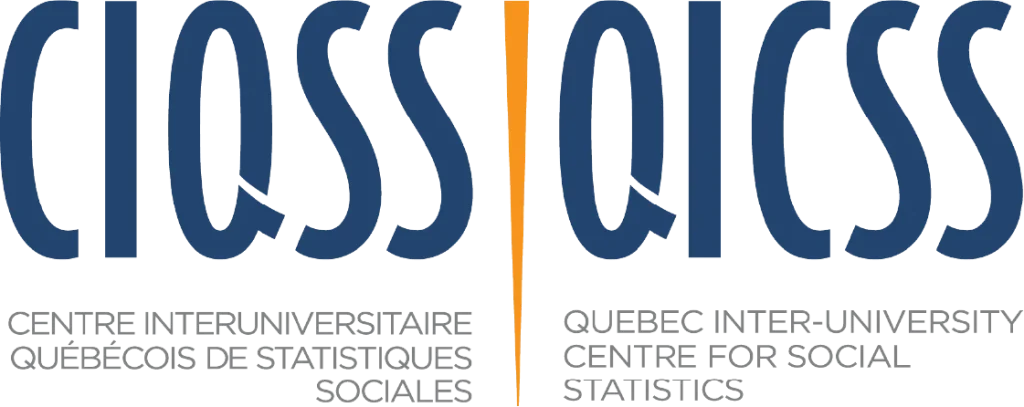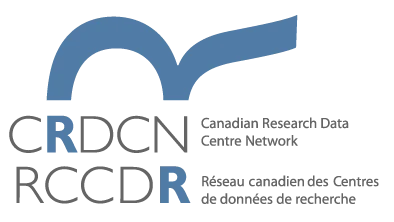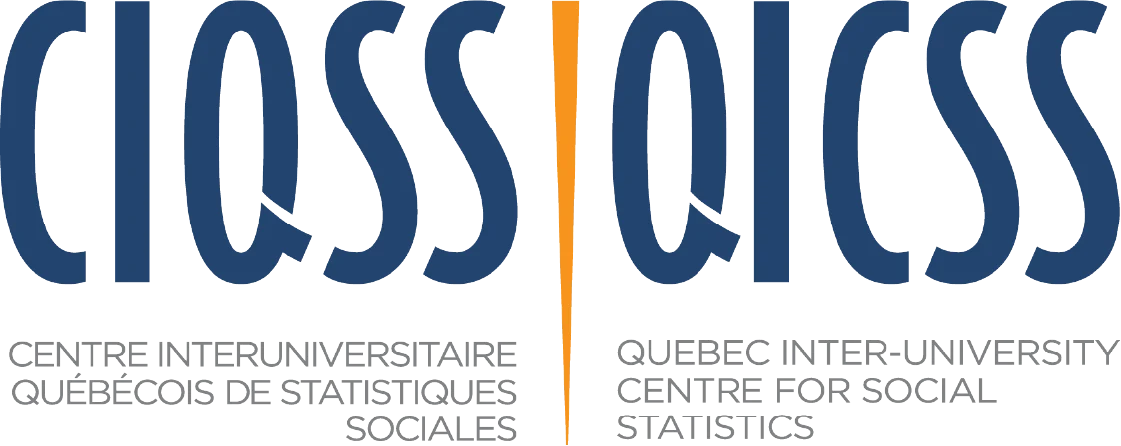Training
Training
Introduction to R
March 12 and 13, 2 to 5 p.m.
March 12 and 13, 2 to 5 p.m.
Tim Elrick
Online workshop (in English).
By the end of this training, participants will have gained a solid understanding of the R software, enabling them to perform basic tasks in data management, analysis, and visualization.
Mapmaking with R
March 25, 9 a.m. to 12 p.m.
March 25, 9 a.m. to 12 p.m.
Tim Elrick
Virtual workshop. This workshop, presented in English, will introduce participants to R’s functions and packages for creating geographic maps. The workshop will cover working with coordinate systems, projections, and the conversion of latitude and longitude values into points. By the end of the workshop, participants will be able to create static and dynamic maps displaying point, line and area data, as well as raster images, including inset maps, and export them for reports or websites.
Prerequisites: A basic knowledge of R and the tidyverse package is required to take full advantage of the workshop.
Geospatial analysis in R
April 1 and 2, 9 a.m. to 12 p.m.
April 1 and 2, 9 a.m. to 12 p.m.
Tim Elrick
Virtual workshop. This workshop, presented in English, will introduce participants to the functions and methods of geospatial analysis within geographic information science (GIS). Participants will learn how to use descriptive statistics on geospatial datasets, analyze point patterns, perform cluster analysis, as well as interpolation methods and geographically weighted regression analysis.
Prerequisites: Participants should have a basic knowledge of R programming and be familiar with the tidyverse package. An understanding of fundamental geographic concepts and some experience with spatial data are recommended. Previous experience with GIS software is an asset, but not required.
Introduction à l’utilisation des données administratives québécoises pour la recherche
April 14, 2026, 1 p.m. to 3:15 p.m.
April 14, 2026, 1 p.m. to 3:15 p.m.
Marc Dorais
Registration to come
Virtual workshop. The aim of this workshop is to provide an overview of the various Quebec administrative databases available for research via the Institut de la statistique du Québec. Participants will learn to identify the key variables in each bank, assess the strengths and limitations of using these data in research, and explore concrete examples of scientific publications based on these data.
Gestion et analyse de données administratives québécoises
April 21, 2026, 1 to 3 p.m.
April 21, 2026, 1 to 3 p.m.
Marc Dorais
Registration to come
Virtual workshop. This workshop will introduce participants to Quebec administrative data management methods, using a synthetic data set of 1,000 individuals (the donaSYq cohort). The workshop will cover variable creation, file merging, and the creation of a transversal database from several administrative databases. Although focused on health, the methods are applicable to education and income data. Participants will receive a kit containing SAS programming examples and synthetic databases that simulate real administrative databases.
Prerequisites: Basic programming experience (SAS, R, Stata, SPSS, etc.) is recommended to take full advantage of the workshop.
Introduction à l’utilisation du logiciel STATA
Daniel Coulombe
Face-to-face workshop. This workshop introduces participants to the efficient use of STATA. By the end of the course, participants will be able to manage data files, manipulate and transform variables, and analyze them. Emphasis will be placed on the use of the main commands, but the graphical interface will also be used. Resources both inside and outside STATA will also be used to facilitate learning.
Prerequisites: Participants should ideally be familiar with at least one statistical analysis program (SPSS, NCSS, Excel) and have a good understanding of basic quantitative methods.
BADA – Full program
May 4 to 8, 2026, 9 a.m. to 4 p.m.
May 4 to 8, 2026, 9 a.m. to 4 p.m.
Xavier St-Denis
Intensive bilingual bootcamp-style training combining theory and practice to master the analysis of Canadian administrative data. Develop expertise in Statistics Canada’s main databases (tax data, survey linkages and multi-jurisdictional data integration platforms) through morning lectures and afternoon hands-on lab workshops. Participants will acquire analysis and programming techniques specific to longitudinal administrative data, working with real administrative databases.
Note: This program is subject to quotas. Successful applicants will be contacted directly by the professor in spring 2026.
Prerequisites: Active research project and valid security clearance; intermediate level in STATA or equivalent software.
Application deadline: February 13, 2026.
BADA – Advanced STATA programming applied to the analysis of massive and longitudinal administrative data
Xavier St-Denis
Bilingual, face-to-face training. This intensive day will enable you to master the advanced STATA programming techniques essential to the analysis of massive longitudinal and administrative data. On the program: using macros, loops, programs and matrices, formatting and manipulating longitudinal data, producing descriptive results. Ideal preparatory training for administrative data analysis.
Prerequisites: Previous knowledge of STATA. *This activity does not include an introduction to STATA.
Registration links:
Introduction to administrative data analysis focusing on income data
May 5, 9 a.m. to 12 p.m.
May 5, 9 a.m. to 12 p.m.
Xavier St-Denis
>>> Training offered as part of the Matinées BADA (Bootcamp in Administrative Data Analysis)
Hybrid and bilingual training. We will introduce key concepts and basic features of administrative data, with a focus on Canadian tax data such as the Longitudinal Administrative Databank (LAD) and other datasets derived from the T1 Family Files (T1FF). Emphasis will be put on the longitudinal and relational nature of the data. The session includes a detailed description of variables on income, program participation, and wealth in tax data, as well as a brief overview of place of residence information. It will conclude with a discussion of tax data quality and population coverage.
Databases discussed: Longitudinal administrative data (LAD) and other tax datasets.
Open to all.
Studying families using tax data
May 6, 9 a.m. to 12 p.m.
May 6, 9 a.m. to 12 p.m.
Xavier St-Denis
>>> Training offered as part of the Matinées BADA (Bootcamp in Administrative Data Analysis)
Hybrid and bilingual training. Canadian tax data includes detailed information on family structure and family relationships. In this session based on recent research in demography, sociology and economics, we will discuss what types of family dynamics can be observed cross-sectionally and longitudinally in Canadian administrative data, with a focus on data derived from personal tax records. Topics include couple dissolution and reconstituted families, same-sex couples, measures of fertility and the presence of children, extended kinship networks and intergenerational transmission.
Databases discussed: Longitudinal administrative data (LAD) and other tax datasets.
Session open to all.
Record linkages and data integration
May 7, 9 a.m. to 12 p.m.
May 7, 9 a.m. to 12 p.m.
Xavier St-Denis
>>> Training offered as part of the Matinées BADA (Bootcamp in Administrative Data Analysis)
Hybrid and bilingual training. This session will allow participants to develop a familiarity with record linkage approaches. The main characteristics, properties, and limitations of record linkages will be presented. We will focus on linkages between survey and tax data, federal immigration data (IMDB) and tax data. We will also provide an overview of various linkage platforms that integrate a large number of administrative, survey, and Census datasets, including in some cases provincial data. The potential and limitations of these platforms will be discussed, with a focus on the Education and Labour Market Longitudinal Platform (ELMLP), the CEEDD/BEAM business-level data and CanCHEC health data. The session will also include practical examples guiding participants who wish to perform and validate the quality of record linkages.
Databases discussed: Linkages between surveys and tax data, the Longitudinal Immigration Database (IMDB), the Education and Labour Market Longitudinal Platform (ELMLP), the Canadian Employer-Employee Dynamics Database (CEEDD/BEAM) and the Canadian Census Health and Environment Cohorts (CanCHECs).
Session open to all.
Reproducibility in research – Guaranteeing the transparency and credibility of your work
May 11 (9am to 4pm) and May 12 (1pm to 4pm)
May 11 (9am to 4pm) and May 12 (1pm to 4pm)
Lars Vilhuber and Marie Connolly
Bilingual, in person training. This intensive course explores the fundamental principles of reproducibility, a pillar of open science that ensures the transparency and credibility of scientific research. You’ll discover best practices for making your work reproducible, from data management and code documentation to version control and dissemination of results.
Prerequisites: Previous knowledge of at least one statistical software package (STATA, R, Python, SPSS or SAS). Participants should bring their laptops with statistical software installed.
Course outline – 2025 version. (An updated course outline will be posted later over the winter)
Risk and duration models – Module I – Introduction
Simona Bignami
Face-to-face training on Tuesdays and Fridays. The course is given in French, but students are allowed to use English.
Content covered:
Surveys and biographical data
Basic mathematical concepts and functions
Creation of censoring and duration variables; declaration of transition analysis and descriptive statistics
Non-parametric analysis of biographical data (life tables): Kaplan-Meier and actuarial estimation
Parametric analysis of biographical data: proportional-hazards models (exponential, Weibull and Gompertz models) and accelerated-output models (lognormal, log-logistic and gamma models).
Prerequisites:
Participants should be familiar with STATA software.
Risk and duration models – Module II – Regression models for biographical data
Simona Bignami
Face-to-face training on Tuesdays and Fridays. The course is given in French, but students are allowed to use English.
Content covered:
Semi-parametric analysis of biographical data: Cox model.
Estimation of the Cox model; verification of the validity of the Cox model.
Discrete-time risk and duration models: data shaping; logit and probit model estimation
Prerequisites:
Participants should be familiar with STATA software.
Illustrer la recherche quantitative avec R et ggplot2
Pier-Olivier Caron (Workshop in French)
Face-to-face workshop. Learn how to quickly and easily produce graphics ideal for scientific publication. Based on ggplot2’s graphical grammar, the course introduces the creation of elegant and informative visualizations that facilitate the interpretation and presentation of research results. Hands-on training to master the basics of ggplot2 and explore its advanced capabilities for producing custom graphics.
Prerequisites: Minimal knowledge of the R environment
Communiquer la recherche quantitative
Sophie Campion (Workshop in French)
Face-to-face workshop. Learn how to effectively communicate the results of your quantitative research. This workshop combines data visualization techniques and narrative strategies for clear, powerful communication, based on concrete examples of research conducted at CIQSS.
Open to all.
Analyse d’Équations Structurelles avec R et LAVAAN
Daniel Coulombe
Workshop description :
Face-to-face workshop. The aim of this workshop is to introduce participants to the basic and advanced concepts of structural equation analysis using R and LAVAAN. At the end of the course, participants will be able to specify, estimate and evaluate structural equation models. They will also learn how to carry out confirmatory factor analyses and work with multi-group models thanks to LAVAAN’s specific functions.
Prerequisites:
Participants should have knowledge of multiple regression analysis and mastery of basic R functions.
Analyse de classes latentes
Pier-Olivier Caron (Workshop in French)
Face-to-face workshop. This workshop will introduce participants to latent class analysis, which identifies subgroups of normally unobservable individuals from nominal or ordinal variables. The course will cover the theoretical bases, the determination of the number of classes and posthoc analyses. Participants will use R and Mplus to perform these analyses, and the advantages and disadvantages of both software packages will be discussed.
Prerequisites: Familiarity with R or Mplus is recommended, but not essential.
Fall School – Statistique et les dynamiques linguistiques au Québec et au Canada (In French)
Jean-Pierre Corbeil
In person – At QICSS (Université de Montréal)
This training aims to help participants understand and become familiar with the main tools and methods used in demolinguistics—a discipline traditionally referred to as the demography of linguistic groups—in order to study and describe the evolution of linguistic dynamics in Quebec. Comparisons with situations in the rest of Canada will also be presented and discussed.
Prerequisites: Basic or intermediate knowledge of Excel recommended.
Student scholarships
Scholarships are available for students enrolled in the Fall 2025 term who are participating in the Fall School. Two types of financial support are available:
-
Reimbursement of the training registration fees;
-
A mobility grant of up to $800 to help cover travel and accommodation expenses for participants coming from outside the Montreal area.
Scholarship applications will be processed after the completion of the school, once participation has been confirmed.
Open to all.
Introduction to multilevel analysis with R (In French)
Pier-Olivier Caron (Workshop in French)
Face-to-face workshop.
Hierarchically grouped data are common in the social sciences, medical fields and management research. These data violate the independence assumption required by conventional statistical methods. Multilevel analysis is an ideal way of accounting for variability both within and between groups. This hands-on training will enable you to perform multi-level analysis with R.
Prerequisites: Minimal knowledge of the R environment.
Risk models and duration – Full program
Simona Bignami
Face-to-face training on Tuesdays and Fridays. The course is given in French, but students are allowed to use English. This course aims to give students an introduction to the logical and statistical foundations of risk and duration models, as well as an introduction to the practical use of these models in the health and social sciences, in particular file manipulation, data transformation and the application of statistical models.
Includes Modules I, II and III (see course outline).
Prerequisites:
Participants should be familiar with STATA software.
Introduction to R
Marina Doucerain
Registration coming soon
Virtual workshop. At the end of this training course, participants will have a good knowledge of the R software package, enabling them to carry out simple processing (management, analysis, visualization) on databases.
BADA – Innovation with data integration and indirect measurement
Xavier St-Denis
Bilingual training, on Zoom or face-to-face. Explore the new possibilities offered by the Longitudinal Platform between Education and the Labor Market (PLEMT) and other innovations in multi-jurisdictional data linkage platforms. Presentations will focus on new platforms and their applications in research, as well as on different strategies used to indirectly measure certain phenomena in administrative data: unemployment, geographic mobility, emigration, etc.
Databases discussed: Platform longitudinale entre l’éducation et le marché du travail (PLEMT) and Longitudinal Immigration Statistical Environment (LISE).
Open to all.
Registration links:
BADA – Studying families using tax data
Xavier St-Denis
Bilingual training, on Zoom or face-to-face. This session explores the use of administrative data to study family and marriage dynamics over time. Speakers will present the key concepts of T1 family files and share their research experiences on family trajectories, fertility measurement and complex family structures.
Databases discussed: Longitudinal administrative data (DAL) and other tax data.
Open to all.
Registration links:
BADA – Record linkages and data integration
Xavier St-Denis
Bilingual training, on Zoom or face-to-face.
Discover the possibilities offered by administrative data linkage and the challenges associated with this type of analysis. Experts will present concrete examples of the use of linked administrative data, such as the Longitudinal Immigrant Data Bank (IMDB) used in immigration research, and the linkages between survey and administrative data.
Databases discussed: Longitudinal Immigrant Database (IMDB) and linkages between T1 Family Files and various Statistics Canada surveys.
Open to all.
Registration links:
BADA – Foundations of administrative data analysis: the case of income analysis with tax data
Xavier St-Denis
Bilingual training, on Zoom or face-to-face. Discover the fundamental concepts of administrative data analysis. Experts will discuss the differences between administrative data and survey data, emphasizing the longitudinal and relational nature of the data. Particular attention will be paid to T1 files and the potential for analyzing income dynamics, participation in government programs, and economic inequalities.
Databases discussed: Longitudinal administrative data (DAL) and other tax data.
Open to all.
Registration links:
Risk and duration models – Module III – Advanced transition analysis topics
Simona Bignami
Face-to-face training on Tuesdays and Fridays. The course is given in French, but students are allowed to use English.
Content covered:
Independent variables as a function of time.
Estimation of the Cox model and discrete-time risk models with independent time-dependent variables.
Competitive events and risks. Repeated events.
Sequence analysis (theory and application)
Selection effects and estimation of models with heterogeneity
Prerequisites:
Participants should be familiar with STATA software.
Training costs
1/2 day
1 day and +
Student, postdoctoral fellow and postdoc
$ 50
$ 100 per day
Staff of a CIQSS member university
$ 100
200 per day
Other
$ 150
$ 300 per day
Cancellation policy
If the event is cancelled by the QICSS, we will reimburse the registration fees.
En cas d’annulation par la participante ou le participant, les frais d’annulation suivants sont appliqués :
- If the cancellation is more than five working days prior to the activity: 25% of the total amount paid will be retained;
- Five working days or less prior to the activity: 50% of the total amount paid will be retained;
- Two working days or less prior to the activity: 100% of the total amount paid will be retained.
QICSS reserves the right to cancel a training session. In such cases, QICSS’s responsibility is limited to refunding the corresponding registration fees received.
All cancellations must be submitted in writing to formations@ciqss.umontreal.ca.
ABOUT OUR ONLINE TRAINING SESSIONS:
Our online training sessions are offered live only and are not recorded. No refunds will be issued in case of absence.


